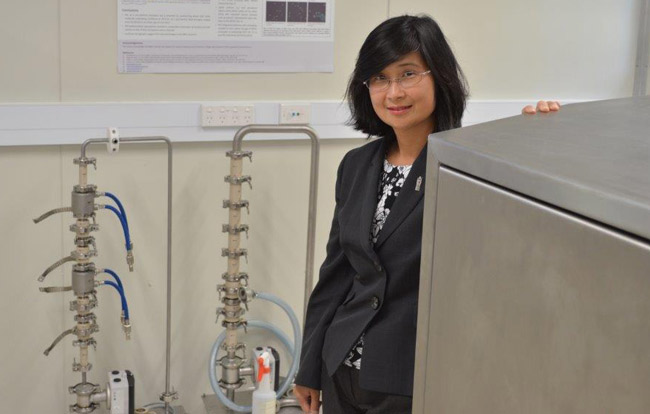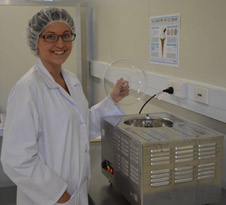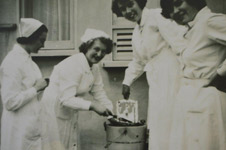
The way ahead ... Department of Food Science Head of Department Professor Indrawati Oey with a Pulsed Electric Field apparatus.
The Department of Food Science now has an interim food-grade processing area for teaching, research, and working more closely with the food industry to add value to products.
Head of Department Professor Indrawati Oey says the “Food Hall” will be used to host food processing equipment that can process small batches of food and develop prototypes.
The unique equipment includes a Pulsed Electric Field apparatus which due to electroporation can alter the microstructure of foods, enhance bioactive extraction, and preserve heat-sensitive liquid products such as milk, fruit juices and smoothies.
The process kills micro-organisms while still retaining as much of the food's original colour, flavour, texture, and nutritional value as possible.
A Pulsed Electric Field machine can perform tasks like instantly tenderising steak as well.
The new lab also has a freeze drier that can produce crisp fruit and vegetables, a heat exchanger which quickly transfers heat to prolong the shelf-life of liquid foods, and a spray drier that produces powder from liquid or slurry by drying it rapidly with hot gas.

Student Zahara King with the lab's ice-cream maker.
The Department already has 16 projects with the food industry lined up for product development and food processing this year, which involve both postgraduates and undergraduates performing the tests on food.
The new lab started life as an American steel hut used in World War II but was redeveloped 70 years ago into a Senior Food Lab for the University's School of Home Science.
Nurse Dietetics Students trained in the “Tin Shed”, which contained 10 kitchens and pre-dated the adjoining Gregory Building, but more recently the shed has been used for storage.
It was actually slated for demolition when Professor Oey realised the sturdy structure could help solve a lack of space that could have affected the department's ability to meet the terms of a $2.68 million dollar grant from the Ministry of Business, Innovation and Employment as part of “Food Industry Enabling Technology” (FIET) project.
The terms for the six-year project, which started last year, stipulated adding value to the food industry through “enabling food processing technology”.
At the opening of the lab this week, Professor Oey thanked the Division of Sciences for funding the redevelopment of the facility and the Division of Research for repainting it.
She says the Food Hall is an interim step, as the department is working towards getting a larger, purpose-built lab.

Back on the day ... School of Home Science students making ice-cream with a churn.
Deputy Vice-Chancellor (Research & Enterprise) Professor Richard Blaikie says the Food Hall and its links with industry embody the vision of having a research-led University that applies knowledge.
The lab will also contribute to New Zealand's economic development strategy by enhancing the country's export industry through adding value to food products.
World-leading universities around the globe have been re-purposing buildings for years, proving “it's the people and the technology we put into our facilities that are the most important”.
He wished all the staff who had shown leadership in gaining the Ministry funding well in their work, so the University can gain the “confidence to invest in bigger and better facilities as the need grows.”
Pro-Vice-Chancellor (Sciences) Professor Keith Hunter says he thought the Food Hall was such a good idea and was so enthusiastic when Professor Oey approached him, that he decided to remove any impediments by funding the lab.
The Department already performed well academically and this should provide income to help show that, while improving the country's food industry as well.
The Department's work also involved partnerships with the University of Auckland, Massey University and Lincoln University, which highlighted the fact food is a national concern rather than a local one.
